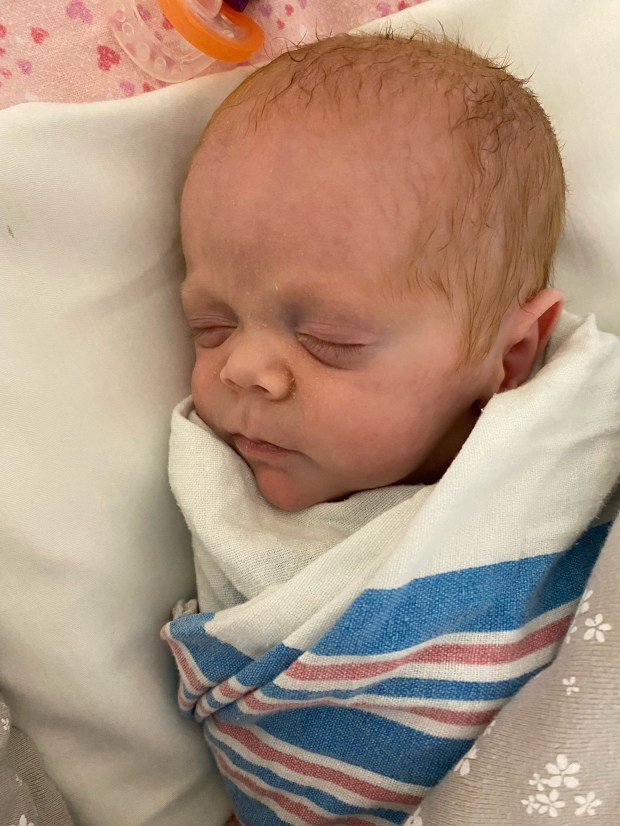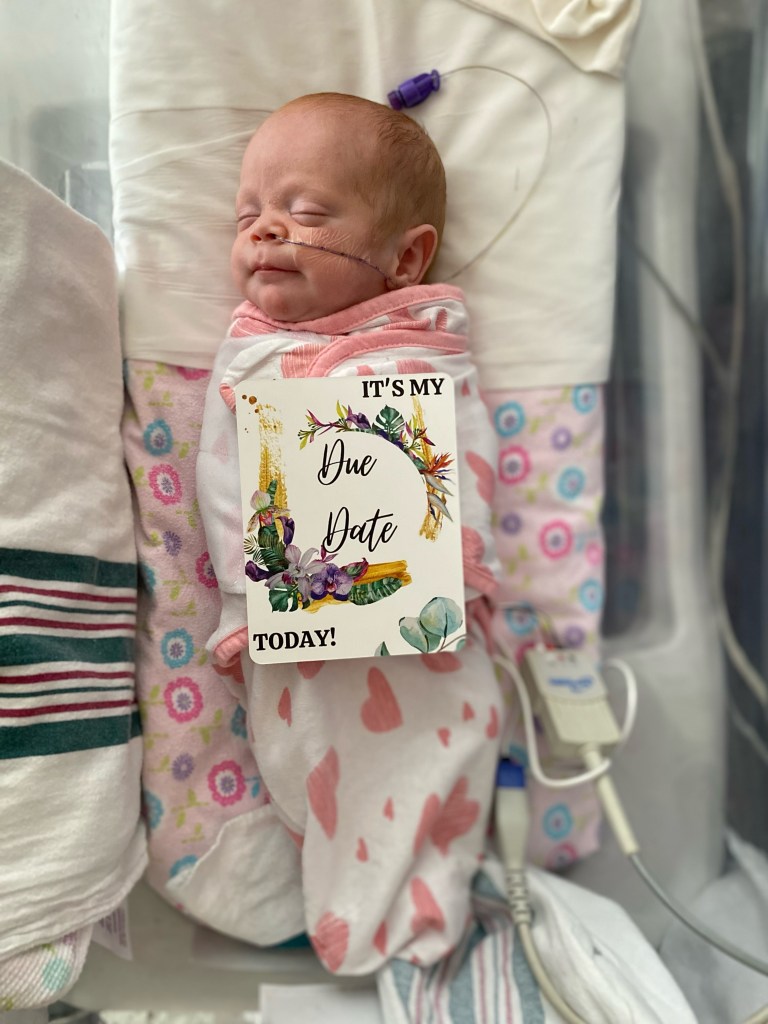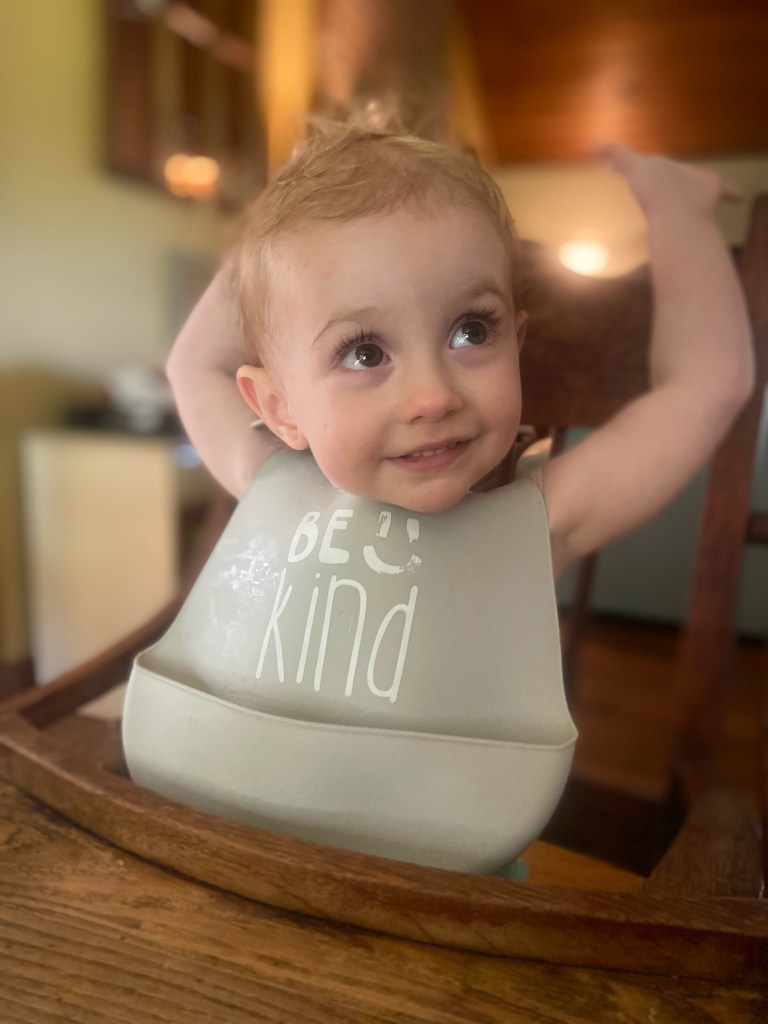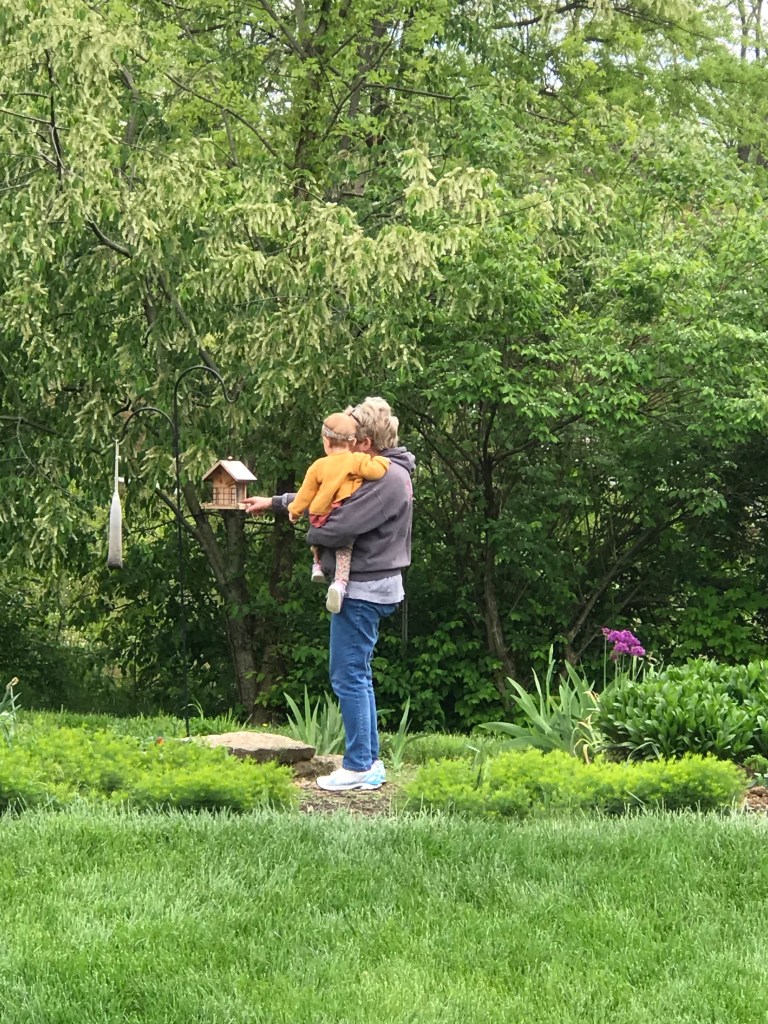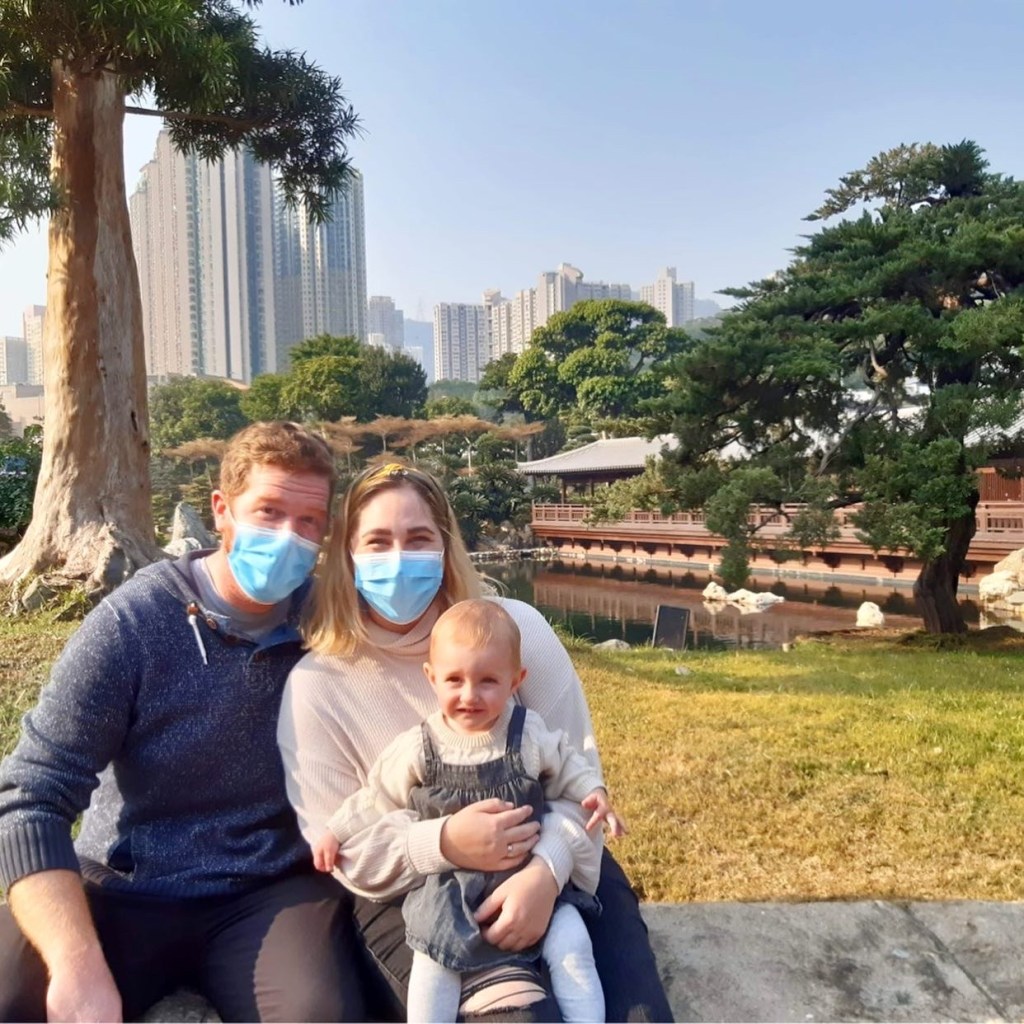Well, today didn’t go as planned.
Back in July, when I circled today’s date on the calendar with colored ink and drew a little heart beside it, I remember being pleased by the symmetry – our family would stretch to four with one birthday in each season. And if you came on your due date, you and your sister would both have birthdays on the 24th of your respective months.
After an incredibly difficult move back from Hong Kong, you were a bright ray of hope that I clung to. Your daddy and I marveled at the ways this timing seemed ideal. I found out I was pregnant with you two weeks after we bought our first house and two days after I started a new job that was a perfect fit for me. A birthday in late March meant your dad would have a week of Spring Break soon after your birth, and that he’d be getting off work for the summer just as I’d be returning to work from maternity leave. You and your sister would be exactly 2 years and 5 months apart.
Of course, I knew you might come a bit sooner or later. These things are never that precise. But never in my wildest dreams did I imagine that today we’d be celebrating 100 days of you.
In Hong Kong, where your sister was born, there is a special celebration for a baby’s 100th day of life. The 100th day celebration has its roots in a time when a baby’s first few months were a very vulnerable period. Reaching 100 days was a milestone that marked the baby’s true entrance into the world and society and included a party or feast to introduce the new life to the community. It seems appropriate to introduce you here for the first time on your 100th day.
You are Lucy Emmanuelle Dunn. Lucy. “Light.” Emmanuelle. “God is with us.” You were born on December 14, 2021 at 25 weeks and 5 days. You weighed 1 lb. 10 oz. and they told us you had a 70% chance of survival. Your odds were better than average, but far from the 99.5% rate of a full-term baby.
After a completely normal pregnancy, I started bleeding with no warning and no pain on Monday, December 6th. I went to the hospital and was diagnosed with cervical ectropion – a condition where cervical tissue grows outside of the cervix. The hospitalist told me this tissue can be very delicate and can be aggravated by stress or activity. He said my cervix was closed and there was no indication that the bleeding was coming from the uterus. Since I had just come off a weekend running a big event, he assumed I had been on my feet too much and just needed to rest. I went home and rested. The next day I went to my doctor for a regular check up. The bleeding had slowed down and everything seemed normal. I went home and rested for the rest of the day, believing everything was fine.
That evening I began to feel some very mild tightening and loosening in my abdomen. I thought it was Braxton-Hicks. By the time I woke up at 6 AM the next morning (December 8th) I knew I was having contractions, and I was slowly leaking fluid. Although part of me was panicking, another part of me was sure that I would go to the hospital, and they would stop the labor. I thought the worse-case scenario was that I would be sent home and put on bed rest.
By the time I arrived at the hospital, the contractions had calmed down, but it was clear that my membranes had ruptured. With ruptured membranes, I would have to stay in the hospital on bedrest until you were born. Statistically, they told us, it was likely you would come within a week, but the goal was to keep you in until you reached 34 weeks. At just 24 weeks and 6 days, that seemed a lifetime away. When they told us that your sister Junie would not be allowed into the hospital to visit, your Daddy and I held each other and sobbed. It was one of the worst moments of my entire life. I knew that to keep you safe, I needed to stay in the hospital as long as possible, but I also knew that I was leaving my other baby suddenly and without warning and possibly for months.
Baby, I did everything I could to keep you safe inside. For 6 days I laid in bed on total bedrest with my legs in pressurized cuffs that tightened and loosened constantly to keep the blood circulating while I was immobile. I had infusions of magnesium sulfate that made me feel like I had the flu and steroid shots to help your lungs develop. I went on course after course of antibiotics to stave off infection. I had what felt like every vein in my hands, wrists, and arms, pierced for blood-draws every few hours to check my hematocrit levels as I bled and bled. (It wasn’t until later that I understood how close I’d come to needing a transfusion). I sacrificed all semblance of dignity and used a bedpan, struggling to haul my pregnant body on and off of it a dozen times a day.
Every morning I woke up and my first thought was, “Thank you God that I’m still here.” Followed quickly by tears and the thought, “Oh God, I’m still here,” while I ached for my baby at home.
When I woke up in the wee hours of December 14th wracked with contractions and sitting in a pool of blood, there was nothing left to do. Lisa, a deacon at our church, had visited me a few days before. Knowing how torn I was between my desire to keep you safe and my desire to be home with Junie, she had prayed that God would keep you in the womb until it was safe for you to come out. Now you were on your way, and I had to trust that it was safe for you to come out.
I called your Daddy and he came to the hospital. They gave me pitocin to help you arrive as quickly as possible so you wouldn’t endure too much stress. Unlike with your sister, I was offered an epidural which I gladly accepted. A nurse named Kristin held me against her chest with so much tenderness I could have wept while the doctor placed that needle into my spine. I laid back in the bed, reached for your Daddy’s hand, and we waited.
My delivery nurse, Miranda, said, “This baby is very small. If you feel any pressure at all, you need to call me.” About 30 minutes later I felt the slightest twinge of pressure. It was so minimal that I felt silly mentioning it, but I hit the call button anyway. Two nurses came in and checked me. “Baby is right there. Cross your legs, girl,” the nurse said while Miranda frantically called the doctor. “You need to hurry,” I heard her say into the phone. The NICU team came in and prepared for your arrival. I’d been in active labor for an hour and half.
The doctor arrived out of breath. She had sprinted from the elevator. She pulled on gloves and moved me into position. “On your next contraction, I want you to push,” she said. I remembered pushing from when I delivered your sister. I knew what to do. I had barely started my first push when she said, “Baby is born.” I saw you for just a moment, raw and red and mercifully wriggling as they whisked you straight to the NICU team. “Baby girl!” I heard them call from across the room. “She’s breathing.”
I couldn’t see what was happening to you, but your Daddy’s gaze flitted back and forth across the room. There was a slight complication. As the doctor delivered the placenta, it tore apart. She had to manually reach in and dig out all of the pieces, an experience that was very painful in spite of the epidural.
Finally it was over and the NICU team had successfully intubated you. They wheeled you over in your isolette so that we could see you before they took you away. “How much does she weigh?” I asked. When they told me 1 lb 10 oz I choked back a sob. You were smaller than any baby I had personally known. You barely looked human.

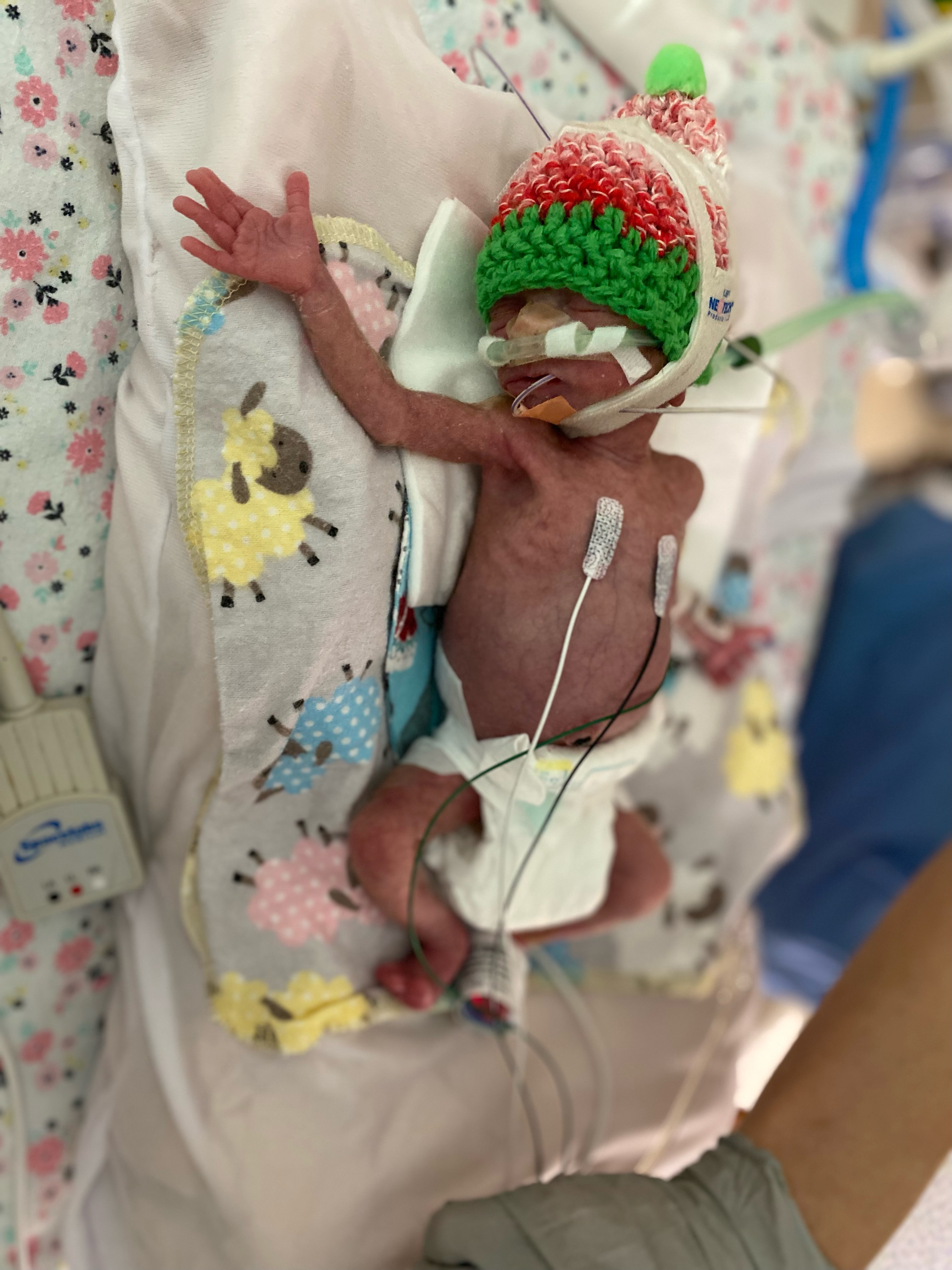
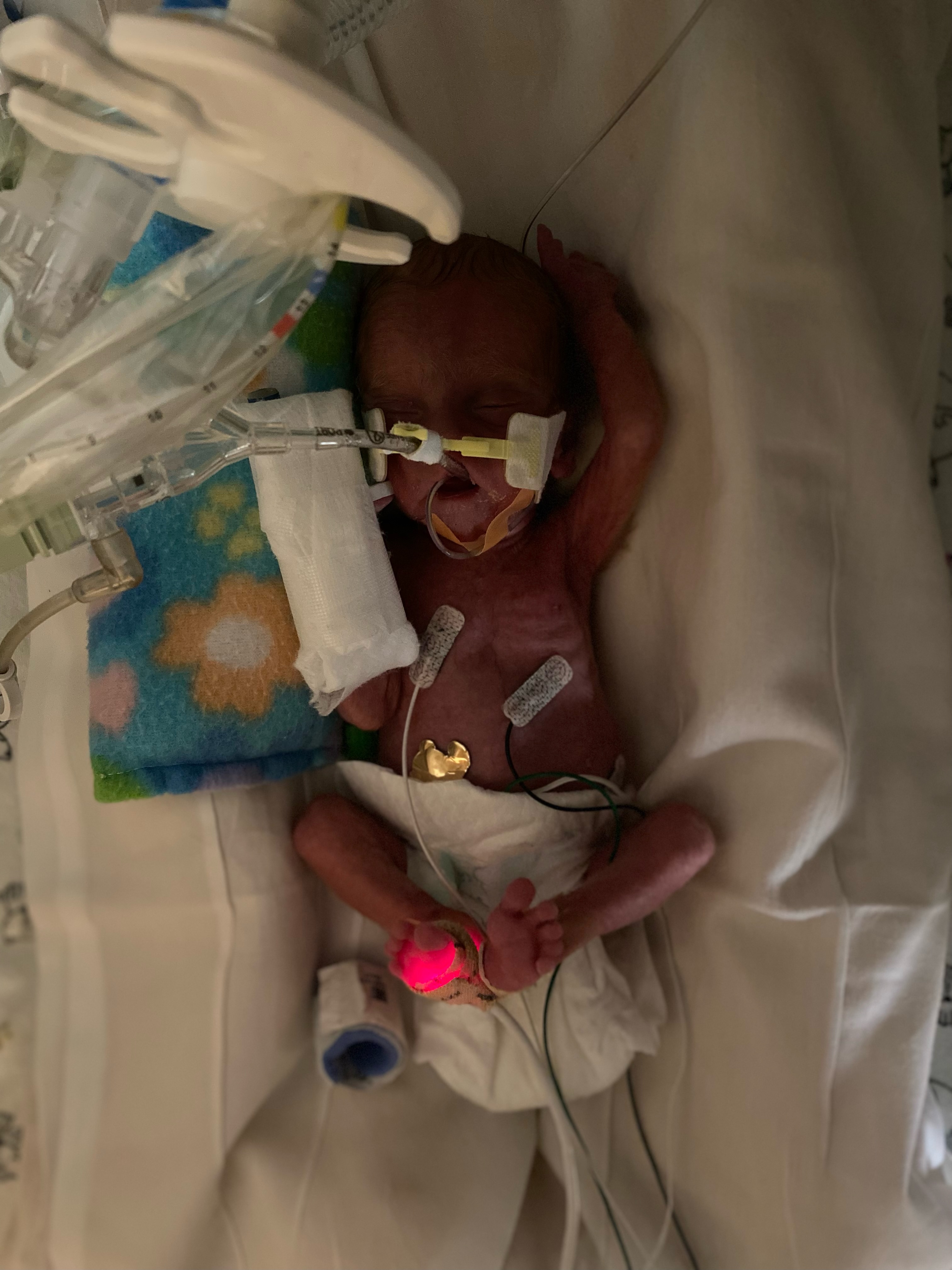


For the last 100 days you have grown outside of my body. Through the incredible care of the NICU doctors and nurses and by the overwhelming grace of God, you have survived and you have thrived. I do not take this for granted.
Just a few days ago I was devastated to learn that another baby in the unit who had been born at 22 weeks, but had survived for 4 months, had passed away. This could so easily have been you, Love. I will never know why my baby lived when this other mother’s did not. I only know how to say, “Thank you.”


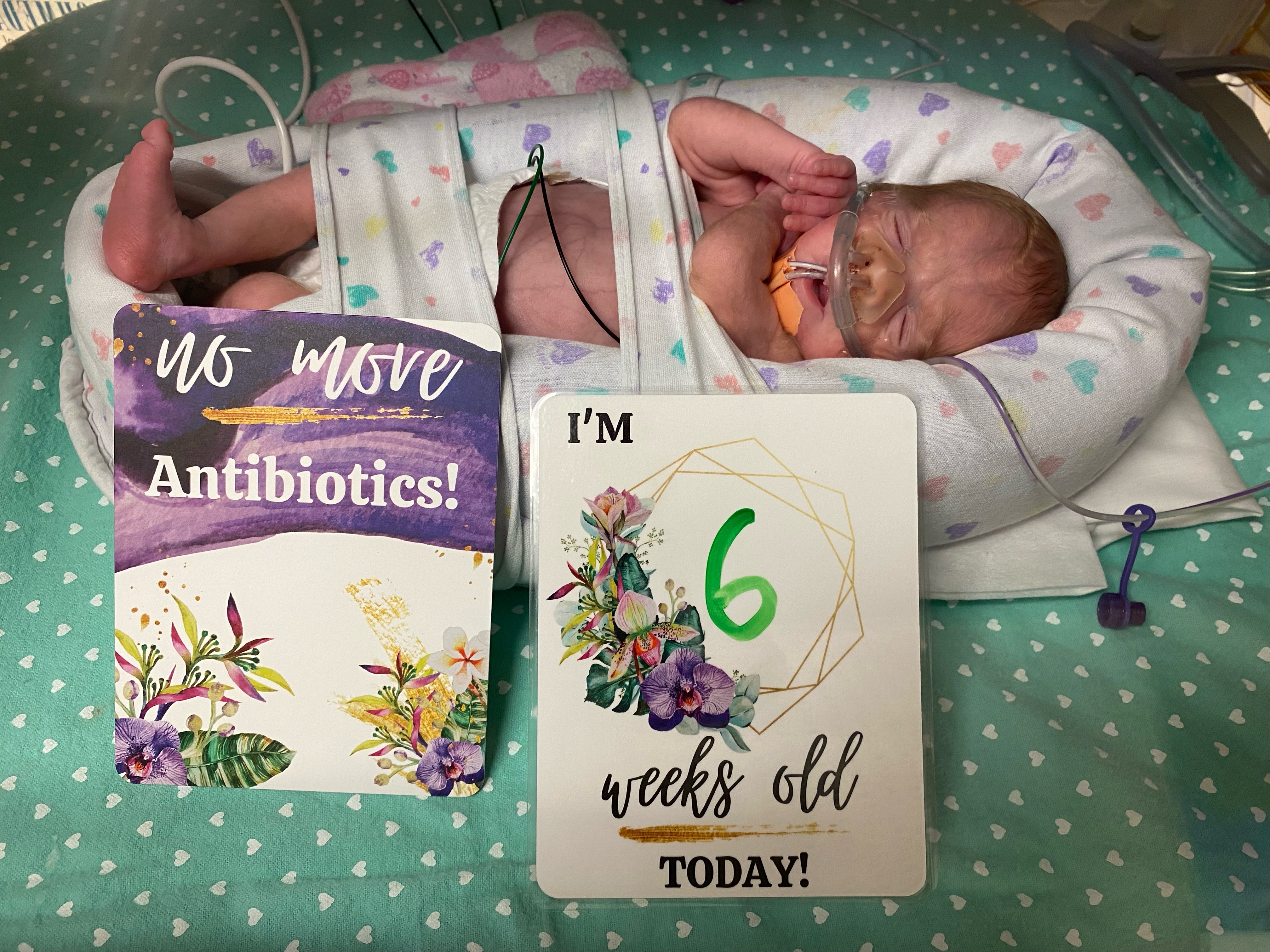
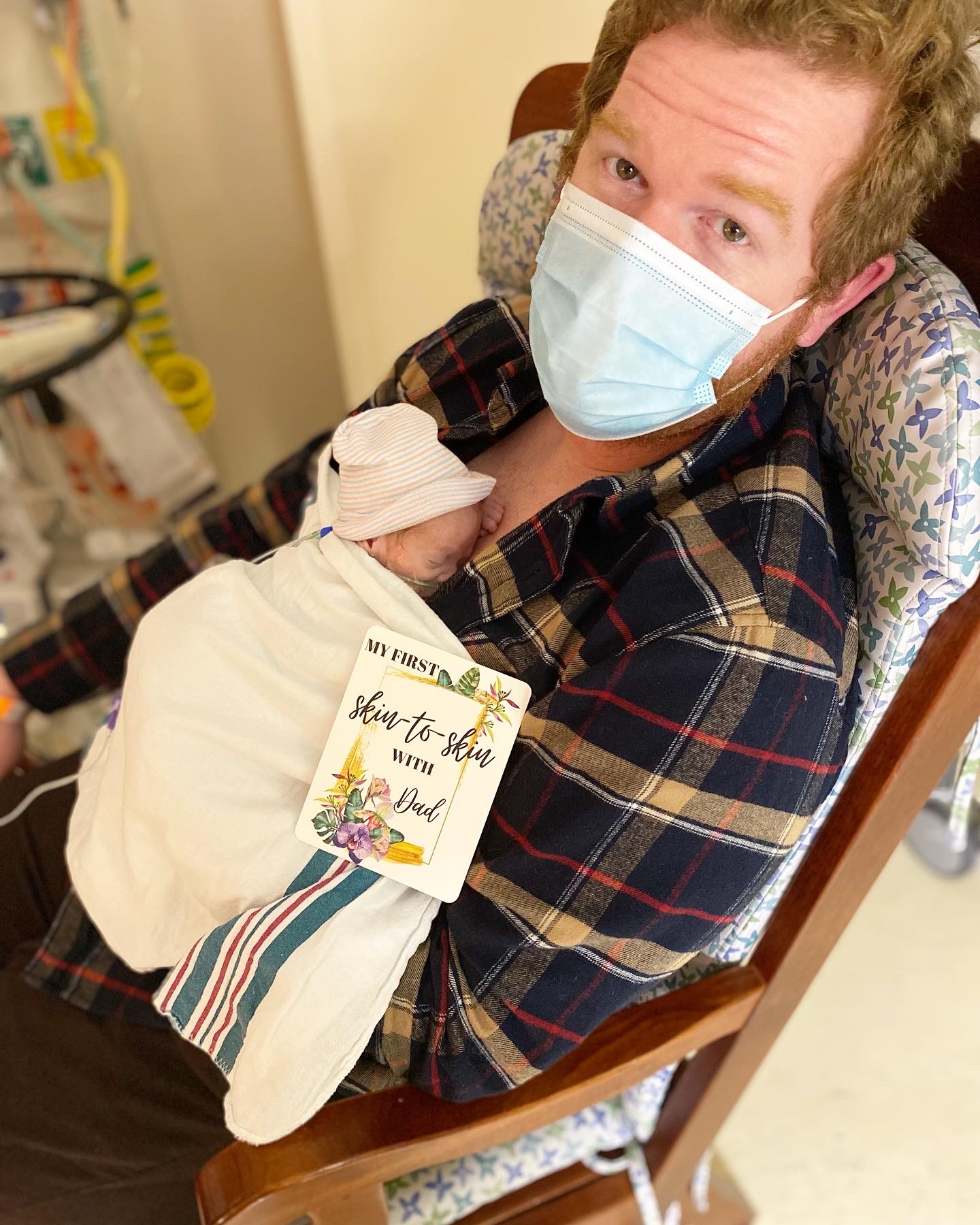


Every day for the last 100 days your dad and I have been at the hospital with you to hold you and read to you and sing to you and watch you grow. Your dad has been working full-time, and I have graciously been given an extended leave during this time. I’m so thankful because going to the hospital, caring for your sister, and pumping milk for you every 3-4 hours since you were born has proven to be more than a full-time job.
In the beginning, you were slow to gain weight. After 6 weeks, you were only 2 ½ lbs. You went on and off the ventilator a few times. And then you developed an abscess on the back of your hand that turned out to be MRSA, an antibiotic-resistant strain of staph infection. There were moments when we worried about your kidney function. It took you ages to completely wean off oxygen.
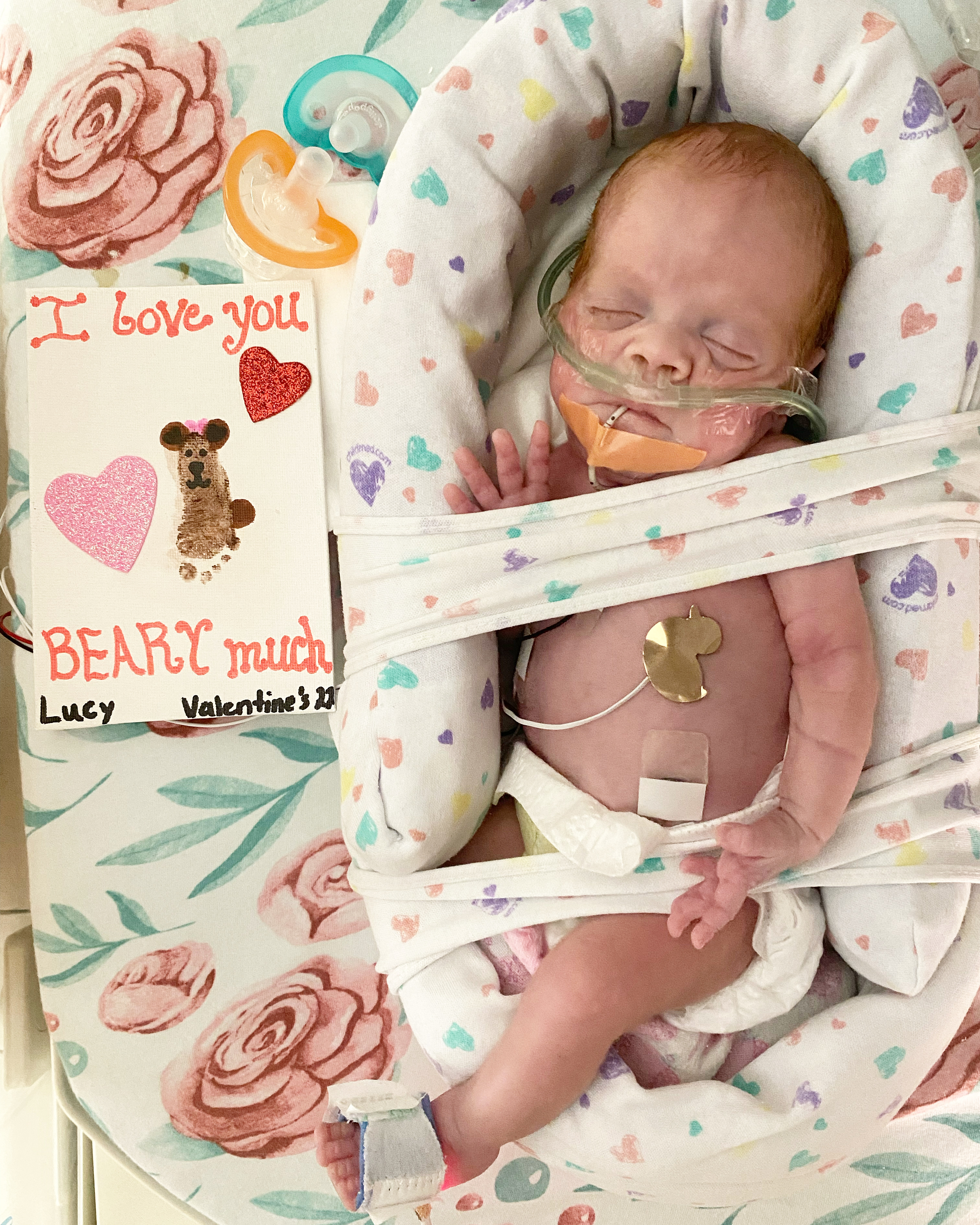
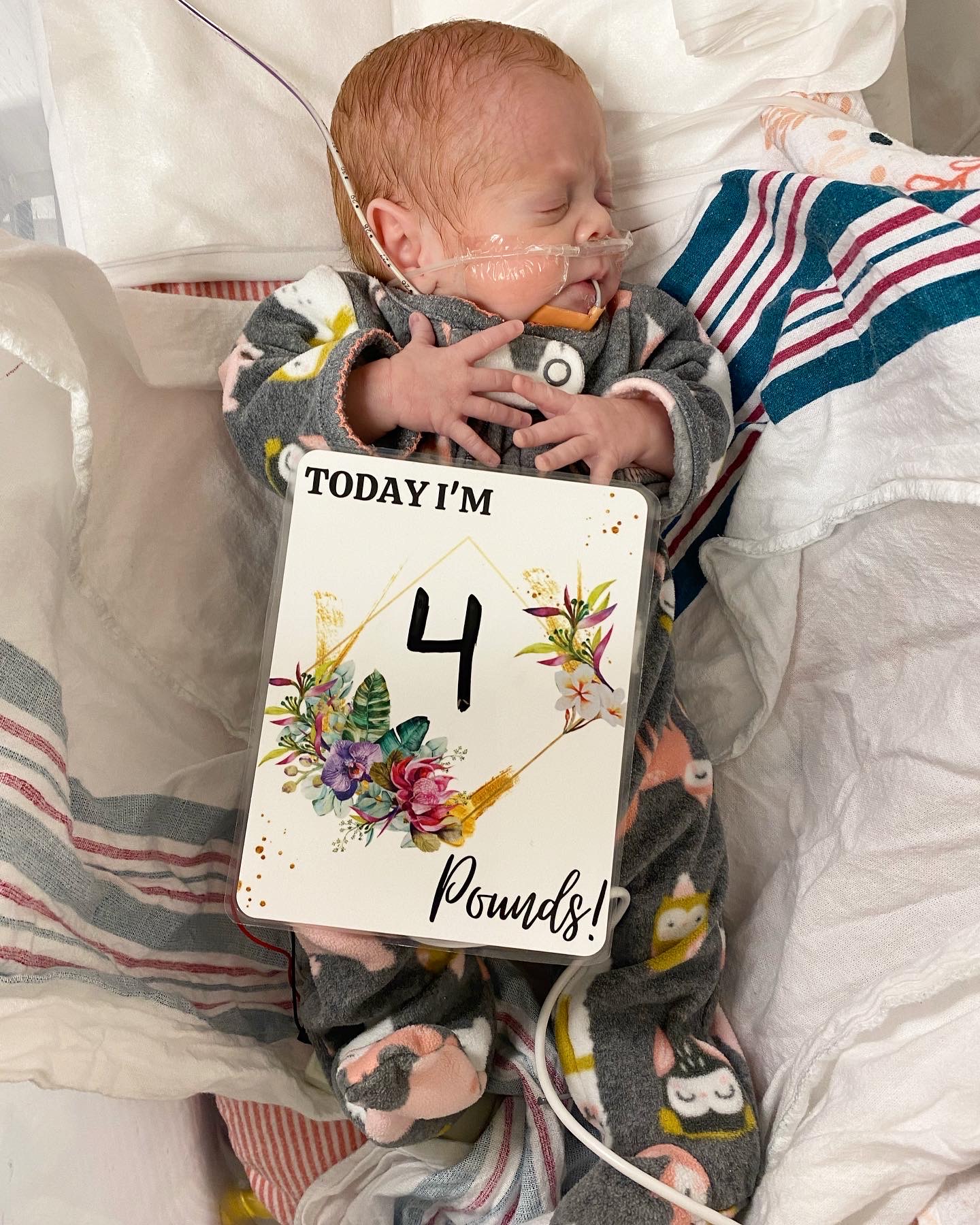



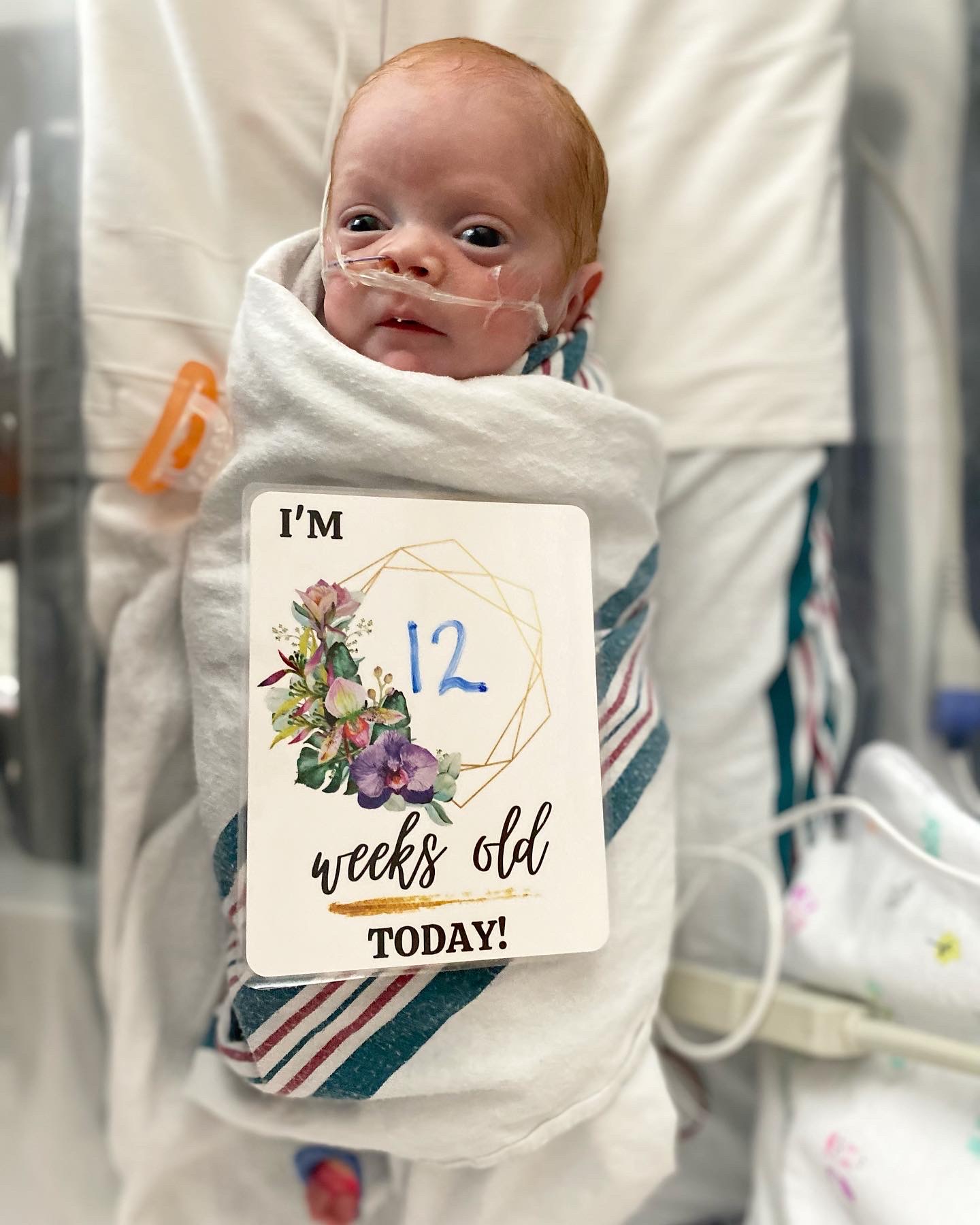
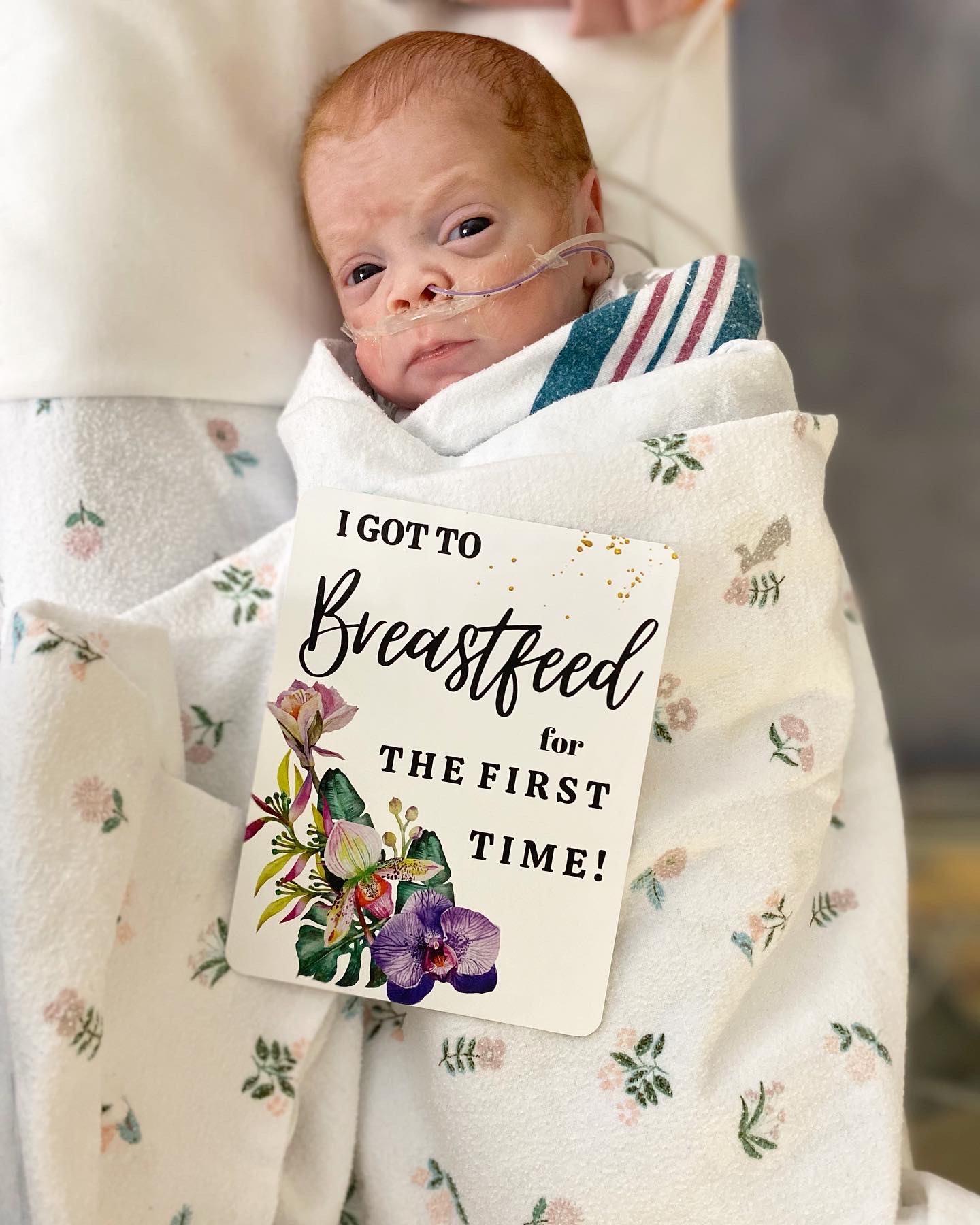

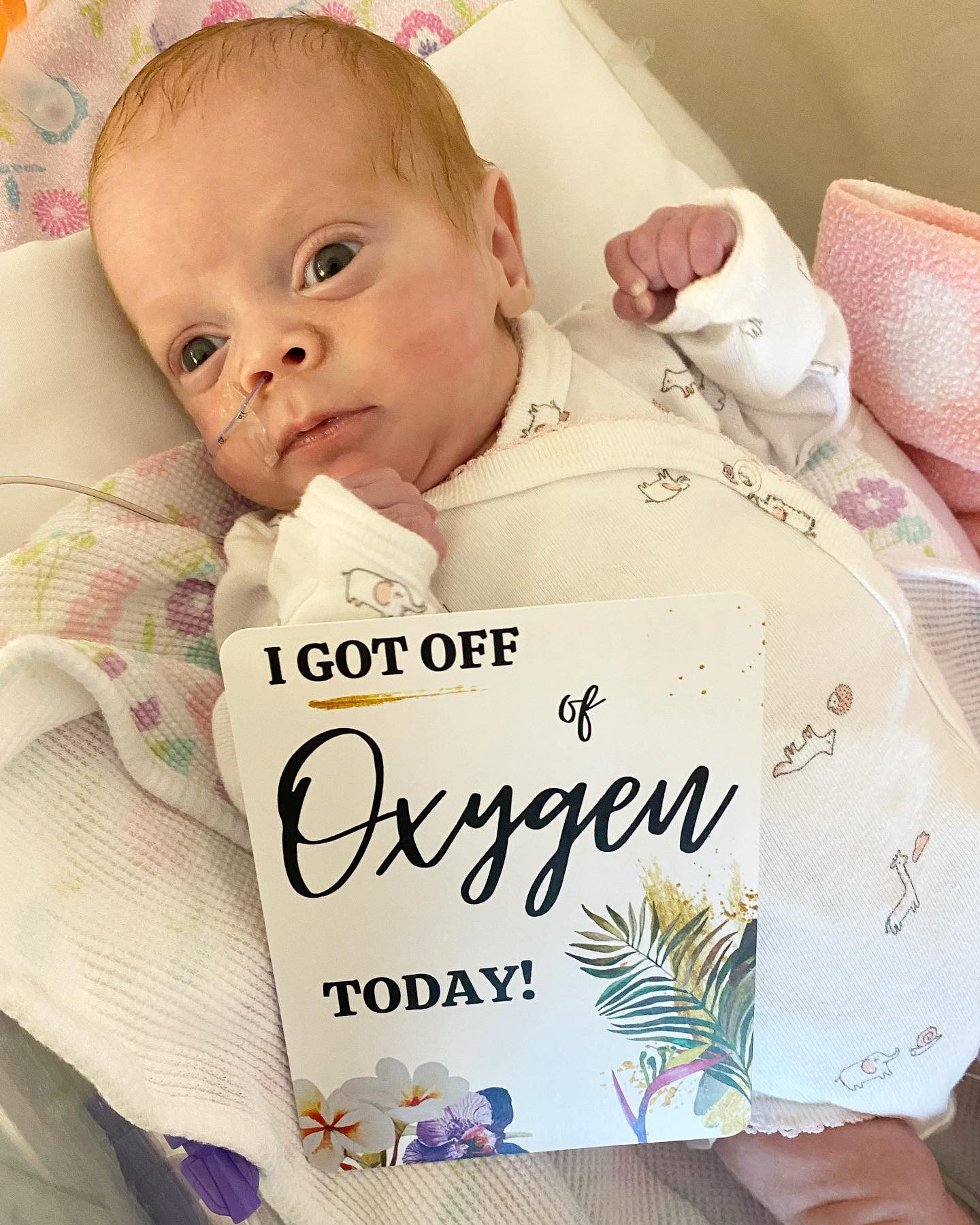
But today you are 100 days old. You weigh 6 lbs 10 oz. You have no long-term medical issues that we are aware of. You are working on bottle and breastfeeding. Right now you are able to take about 40% of your feedings this way. Once you reach 100% for 48 hours, you can come home.
Lucy, you have been absolutely drowned in prayers and love from our families, our friends, our church, and even from people who extend far beyond our immediate circle. We’ve been overwhelmed by the generosity of so many people who have helped to take care of Junie while we came to be with you. Who provided meals for us and donated to help cover your medical expenses. Who cleaned our house and raked our yard.
All life is precious and all babies are special. But you? You are a marvel. You are an answer to the prayers of so many people. The reality is that you should not be alive. If you’d been born 100 years ago, you would not be alive. If you’d been born in another part of the world, you might not be alive. But here you are. In all of your wriggling, grunting, copper-headed glory.
Here you are, and the whole world lies before you.
Welcome, Darling. Welcome.
